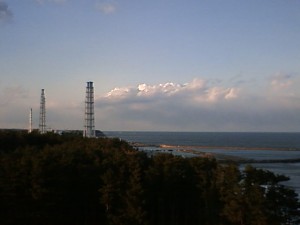This blog is a work-in-progress to help address the situation in Japan and concerns about fallout. Here are some sources of radiation data:
TARA Network – Terrestrial and Atmospheric Radiation Awareness Network
These stations utilize probes incorporating “2 inch pancake gm tubes” which are sensitive to alpha, beta, gamma and x-radiation. Average background readings vary from 16 to 60 CPM (Counts per Minute), depending on altitude and natural soil composition. Horizontal scale shows time in hours. Vertical scale shows radiation level in CPM.
Ashland, Oregon – Online
Haiku, Hawaii – Temporarily Offline
Anchorage, Alaska – Temporarily Offline
Petaluma, California – Online
To view TARAnet data in its present form you must have JAVA installed on your computer, and you must have JAVA enabled in your browser. If you have trouble getting most recent data please clear cache restart your browser.
We are working to bring more live monitoring stations onto TARA Network. Stay tuned.
Radiation Detection Network at http://www.rtdn.org has created a portal where radiation data can be shared.
The EPA is reporting data from their Radnet network of sensors here.
UC Berkeley is detecting trace amounts of radioactivity from Fukushima. View their data here.
Radiation Network – An organized grass roots network of detectors.
This network of instruments display data using GeigerGraph software from the company Mineralab. People who own compatible Geiger Counters can purchase the software and participate in the network. There are a lot of features in the software including the ability to view network data in detail even if you are not a radiation monitoring site.
Please keep in mind that we are not in control of quality on all of these stations. Increased radiation levels can sometimes be caused by people undergoing medical procedures, household items that are radioactive, and malfunctioning equipment. Higher levels at some stations can also be due to radon gas, altitude variations (higher at higher altitudes), mineral content of the soil, and other factors. Look for trends and watch wind patterns.
Comments closed

